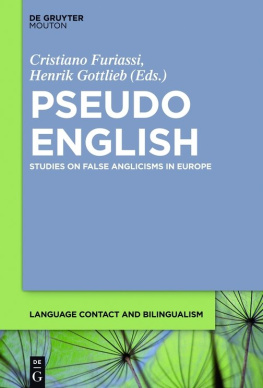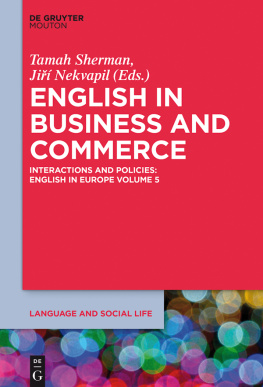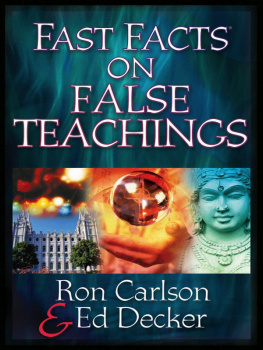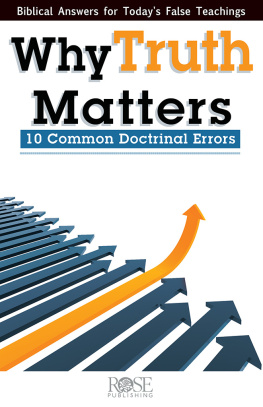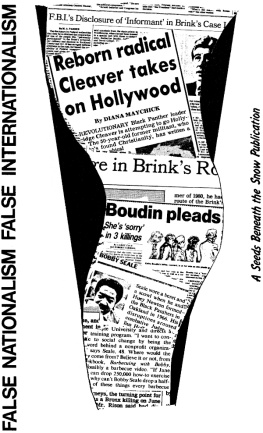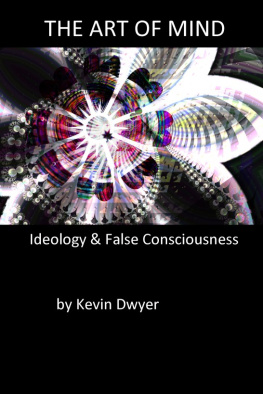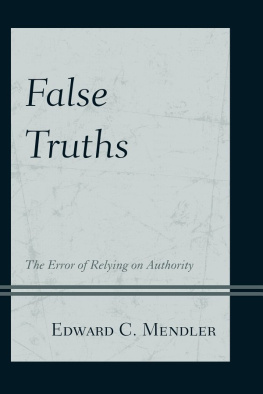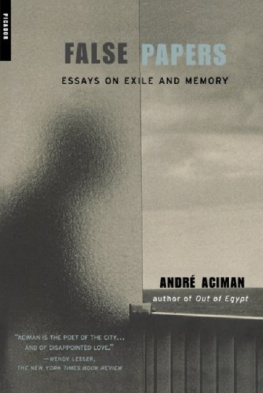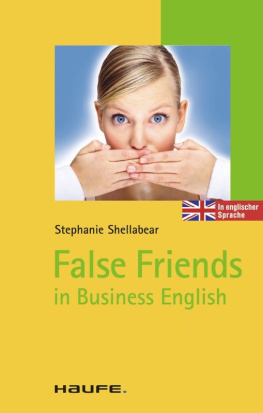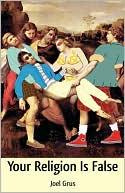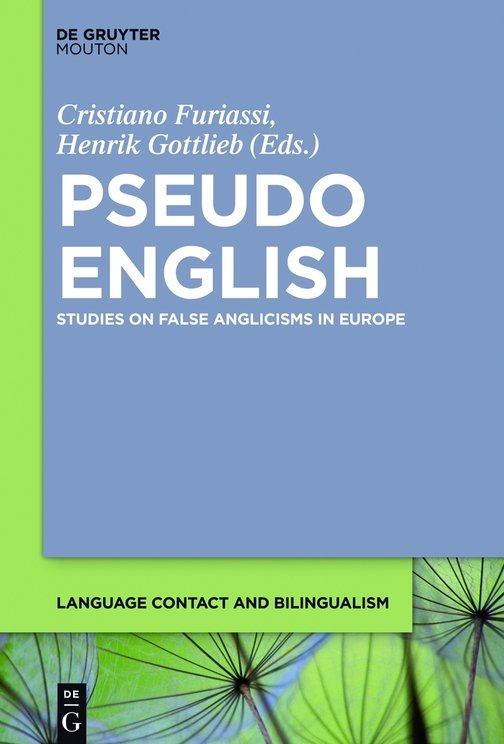Acknowledgements
All articles appearing in this volume are based on papers presented at the seminar entitled The Creative Reshaping of Vocabulary: Pseudo-/False Borrowing from/into English, held at Boazii niversitesi in Istanbul, Turkey from the 4th to the 8th of September 2012 as part of the 11th international conference of The European Society for the Study of English (ESSE).
The scholarly success of the conference was made possible by the invaluable contribution of the conference organizer, Professor Iil Ba (Boazii niversitesi), then president of the ngiliz Dili ve Edebiyat Aratrmalar Dernei (IDEA), namely the English Language and Literature Research Association, the Turkish branch of ESSE. Further thanks are due to the president of ESSE, Professor Liliane Louvel (Universit de Poitiers), and the former president, Professor Fernando Galvn (Universidad de Alcal).
The editors are greatly indebted to the following scholars, who kindly accepted to act as reviewers of the articles included in this volume, thus improving its final quality by means of helpful comments: Henri Bjoint (Universit Lumire Lyon 2), Silvia Bernardini (Universit di Bologna), Marcella Costa (Universit degli Studi di Torino), Sara Laviosa (Universit degli Studi di Bari Aldo Moro), Antonio Lillo Buades (Universidad de Alicante), Alexander Onysko (Alpen-Adria Universitt Klagenfurt and EURAC Bozen/Bolzano), Mariagrazia Margarito (Universit degli Studi di Torino), Virginia Pulcini (Universit degli Studi di Torino), Francesca Rosati (Universit degli Studi di Teramo) and Flix Rodrguez Gonzlez (Universidad de Alicante).
Henrik Gottlieb and Cristiano Furiassi
1 Getting to grips with false loans andpseudo-Anglicisms
Abstract: Words that sound or look foreign, yet are not direct imports from another language, represent a special challenge to laypeople and linguists alike. Whereas non-experts may unknowingly use such home-spun words when communicating in the foreign language, linguists may be able to spot these items but still fail to agree on how to label and define them. In the 21st century, most loans and pseudo-loans are based on English, and this article presents a number of expert definitions and delimitations of English-inspired, yet not truly English lexical items. The reader is presented with examples of pseudo-Anglicisms from a range of European languages, items demonstrating the past and present fascination with foreign-sounding words. While modern corpus searches reveal that only one word out of five thousand in continental European languages may qualify as a pseudo-Anglicism, such -isms represent a long and strong tradition of linguistic hybridity. These deceptive items are the mutant outcome of intercultural encounters in an era where English is still the prime exporter of magic words and their components.
Keywords: bona fide Anglicisms, catachrestic loans, core pseudo-loans, donor languages, false Anglicisms, frequency studies, internationalisms, linguistic borrowing, luxury loans, necessary loans, neologisms, peripheral pseudo-loans, pseudo-Anglicisms, receptor languages, text corpora, typologies
1 Introduction
This volume is the first ever to deal exclusively with false loans also known as pseudo-loans involving the English language. It contains a selection of papers presented at the seminar The Creative Reshaping of Vocabulary: Pseudo-/False Borrowing from/into English held at Boazii niversitesi, Istanbul, in September 2012 as part of the 11th International Conference of The European Society for the Study of English (ESSE). By gathering scholars working in this area of expertise, the seminar was aimed at evaluating past and present approaches and comparing methodologies for assessing the phenomenon of pseudo-/false borrowings within single languages and across languages. Pseudo-borrowings or false borrowings occur when genuine lexical borrowings, or elements thereof, are reinterpreted by speakers of various receptor languages, resulting in formal and/or semantic changes related to the words in question. Contributions at the seminar, attracting a considerable international audience, included papers by scholars from six European countries Denmark, France, Germany, Italy, Norway and Spain, thus well representing both the Germanic and the Romance languages spoken in Europe. English being the prime generator of loans worldwide means that the focus in the seminar, as reflected in this volume, was on false loans in other languages, i.e. pseudo-Anglicisms like youngtimer for classic car, but even false loans in English are covered, e.g. pseudo-Gallicisms like rendez-vous for secret meeting.
Pseudo-Anglicisms in Europe and worldwide constitute a relevant topic: though quantitatively limited, their pervasiveness, motivated by sociolinguistic and cultural factors, is indeed remarkable and, at the same time, controversial. The articles appearing in this volume fit into a rather new and quickly developing research field and will appeal to scholars interested in the spread of the English language, contact linguistics, lexicography. The lexical influence of English on other European languages via genuine as well as false Anglicisms is a field worth investigating. It goes without saying that false borrowings spread across international boundaries: therefore, the development of shared principles and methods for their definition and categorization, especially from a cross-linguistic standpoint, is much needed.
This book is divided into four parts. The two contributions in Part 1 address theoretical problems and methods relevant to the exploration of the notion of false borrowings in general and false Anglicisms in particular: the qualitative and quantitative features of false loans (Gottlieb and Furiassi), and the categorization of false borrowings as allogenisms (Humbley). Part 2 is entirely devoted to the spread of false Anglicisms in three Germanic languages, namely an appendix includes a survey of the terminological ambiguity attested by a dense reference section surrounding false borrowings and false Anglicisms (Furiassi).
2 Qualifying pseudo-Anglicisms
neologism might replace the commonly used terms false Anglicism and pseudo-Anglicism, the latter of which has been preferred in most scholarly publications, especially by authors from Germanic speech communities, while the former is widely used in studies on the Romance languages (see Furiassi in this volume).
However, a label like English-based neologism would include two unwanted types of neologisms: (1) coinages by non-native English speakers meant for intra-English communication and (2) any all-English neologism coined in speech communities belonging to the inner circle of native-speaking Anglophone societies, as defined by Kachru (1985). For this reason, and for lack of a true alternative, in this article we will use the terms pseudo-Anglicism and false Anglicism.
As so often seen in developing academic fields, diverging or even imprecise terminology in contact linguistics is related to disagreement concerning the very nature of the topic studied. The lack of consensus with respect to the term Anglicism (Gottlieb 2005: 162163) may lead to incompatibility of lexicographical data when comparing speech communities (Gottlieb 2002: 142). In the words of Manfred Grlach (2003: 67): [i]t would be rash to conclude that differences [in selected dictionaries of Anglicisms] must reflect conditions in the languages covered they may well represent the lexicographers personal hobbies or dislikes.

